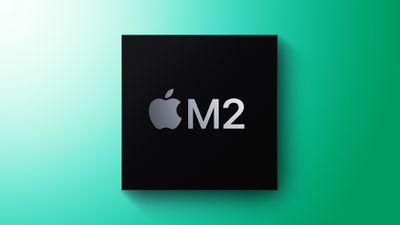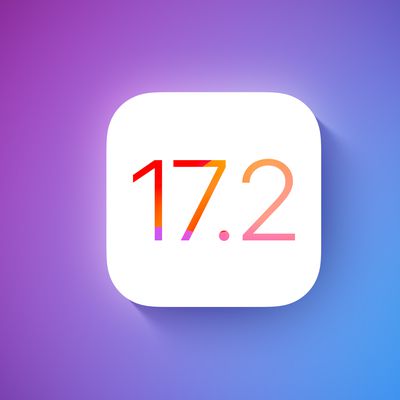Apple's custom next-generation Mac processor entered mass production this month, claims a new report today from Nikkei Asia. Tentatively dubbed the "M2" after Apple's M1 chip, the processors take at least three months to produce and could begin shipping as early as July in time for incorporation in Apple's next line of MacBooks, according to the paper's sources.

The next generation of Mac processors designed by Apple entered mass production this month, sources familiar with the matter told Nikkei Asia, bringing the U.S. tech giant one step closer to its goal of replacing Intel-designed central processing units with its own.
Shipments of the new chipset -- tentatively known as the M2, after Apple's current M1 processor -- could begin as early as July for use in MacBooks that are scheduled to go on sale in the second half of this year, the people said.
Produced by Apple supplier TSMC, Apple's custom M1 silicon made its debut late last year with the introduction of the Mac mini, MacBook Air, and 13-inch MacBook Pro, bringing considerable performance improvements and battery efficiency over the Intel chips it replaced.
Just last week, Apple unveiled redesigned 24-inch iMacs and a new iPad Pro lineup, and to underscore the hardware capabilities of the devices, Apple kitted them out with the same 5nm-based M1 processor found in its other Apple silicon Macs.
With an 8-core CPU, up to an 8-core GPU, a 16-core Neural Engine, unified memory architecture, and more, Apple says the M1 chip delivers up to 3.5x faster system performance, up to 6x faster graphics performance, and up to 15x faster machine learning, while enabling battery life up to 2x longer than previous-generation Macs.
Apple said in 2020 that it would take the company two years to fully transition from Intel chipsets to Apple silicon. Rumors suggest that future Apple silicon Macs will include new 14-inch and 16-inch MacBook Pro models with an all-new form factor as early as Q2 2021, in addition to a redesigned 27-inch iMac later this year and a smaller version of the Mac Pro, likely in 2022.























Top Rated Comments
-sent from my M1 machine
The beast is about to get unleashed…
With that in mind, I started thinking that maybe releasing a chip with 8 performance cores now, then another one with 12 or 16 cores later, may not really make sense. If Apple goes straight from 4+4 cores to 12+4 cores, with doubled GPU cores, and the on-chip memory just as a giant cache with more external RAM, that would be very interesting. An M2 chip would then be equivalent to 18 Intel cores. So you would have the choice between either an M1 chip for "low-end" Macs that works just fine (and better than quad core Intel chips), or an M2 which blows every Intel chip out of the water, except for the most expensive Mac Pros. And nothing in between. So nothing for people who say "I want something a bit faster". Either "M1 is just fine for me" or "I really want all the performance that I can get".
(12+4 cores and not 12+12 because more than 4 power savings cores don't make sense to me. The amount of on-chip RAM would be interesting; if you have 64GB outside the chip, the choice between 8GB or 16GB on chip would be only for performance because there is little difference between a total 72GB or a total 80GB, and 8GB might give you most of the performance gains).
The M1 Macs _are_ "entry level". They are just astonishingly fast "entry level" computers, which confuses many people. Now the existing machines all make sense. I'd think that every line except maybe the MBA will gain an M2-based model. What I would find interesting is whether Apple would build the 27" iMac (probably upgraded to 30") with an M1 at all, or only with the more powerful M2.
So: MacMini - choice of M1 or M2. MBA - only M1, because it is only entry level. MBP - M1 or M2. iMac 24" ??? iMac 27/30" ???
And of course nobody knows what Apple will call the chips. They could call them all M1. And next year's chips, whether 4 or 8 or 12 cores would be M2, and M3 the year after that and M10 in 2030.